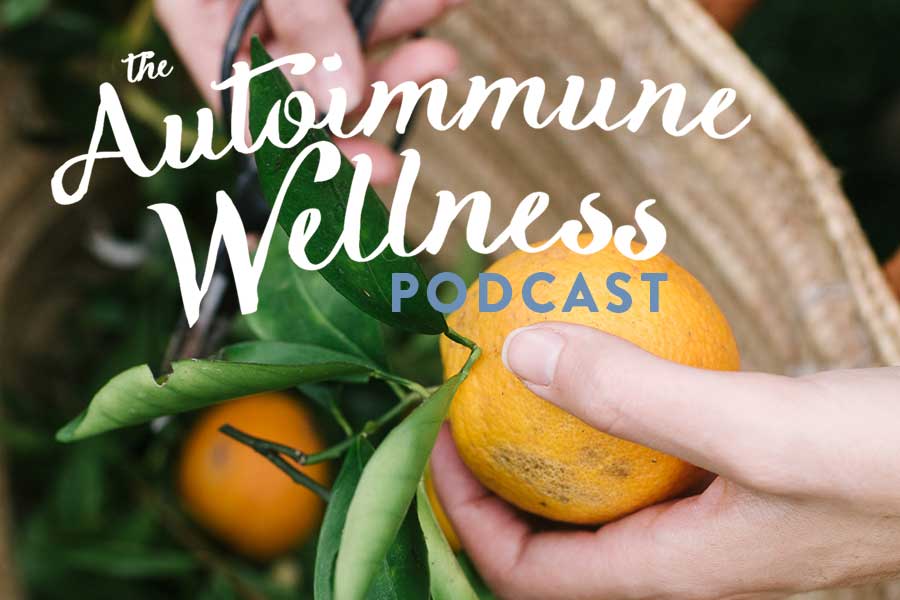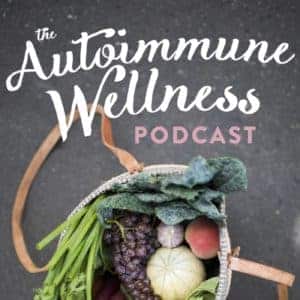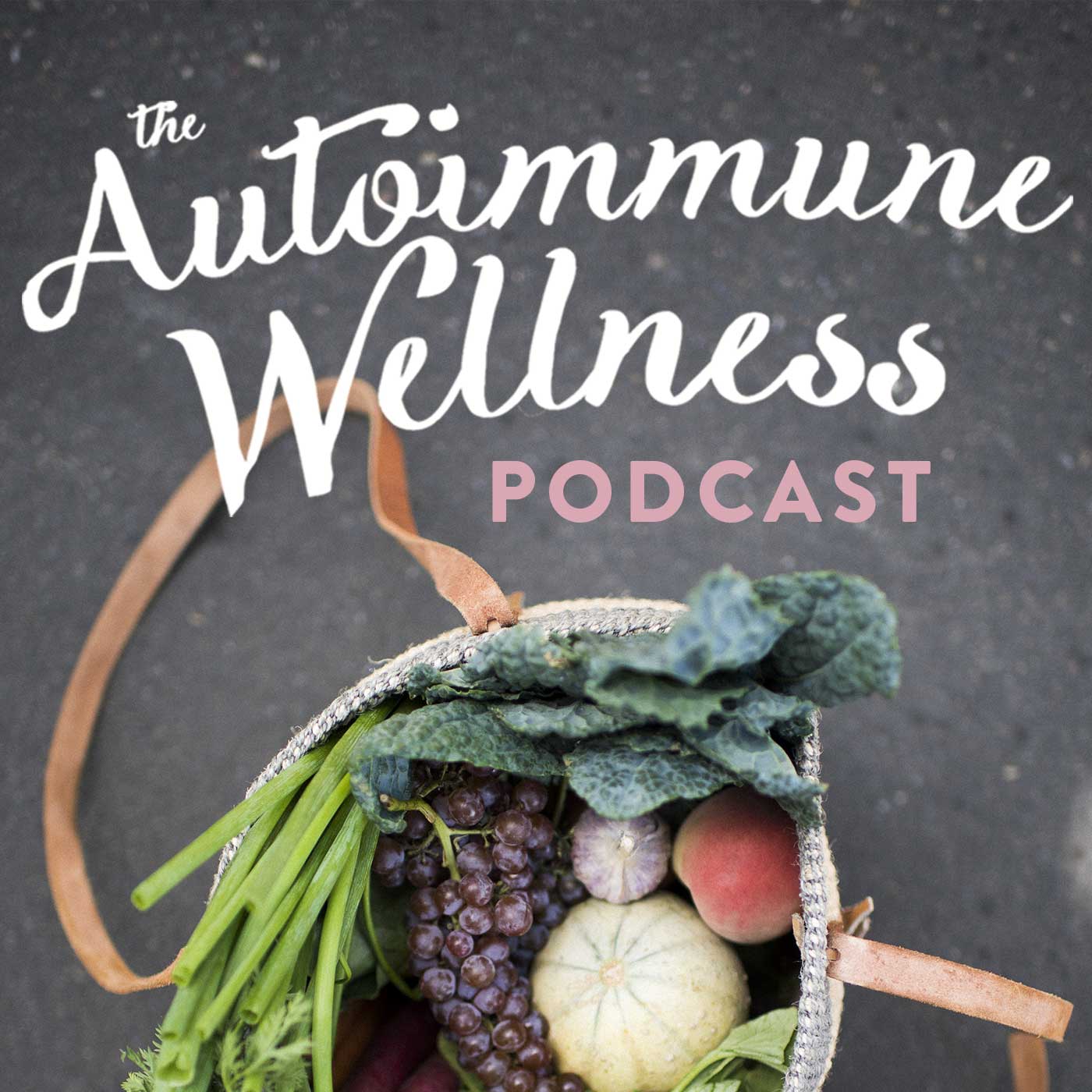S3 E6 – Minimizing Waste w/ Rachael Bryant
Description


Welcome to The Autoimmune Wellness Podcast Season 3: Real Food on a Budget. We’re dedicating this season to discussing an aspect of natural healing that often gets left out of the conversation: affordability. We’ll be chatting with experts and peers from the AIP community about how to best balance money with your health priorities.
This season is brought to you by our title sponsor, The Nutritional Therapy Association (NTA), a holistic nutrition school that trains and certifies nutritional therapy practitioners and consultants with an emphasis on bioindividual nutrition. Learn more about them by visiting NutritionalTherapy.com, or read about our experiences going through their NTP and NTC programs in our comparison article.
Season 3 Episode 6 is not just about a clever way to maximize your food budget, but one of the biggest struggles our culture faces when it comes to sustainable food production: reducing food waste.
We are discussing how to make the most of all the ingredients we’ve talked about sourcing in the previous episodes so you can best minimize waste and reuse leftovers. Our guest is Rachael Bryant from the blog Meatified, who shares some excellent advice and personal experience around creating a low-waste kitchen. Scroll down for the full episode transcript!
How to listen:
If you’d like to have our podcasts sent directly to your device, subscribe in iTunes or Stitcher!
If you’d like to download the .mp3, you can do so by following this link.
If you’d like to play the episode right now in your browser, use the player below!
Full Transcript:
Mickey Trescott: Welcome to the Autoimmune Wellness podcast, a resource for those seeking to live well with chronic illness. I’m Mickey Trescott, a nutritional therapy practitioner living well with autoimmune disease in Oregon. I’m the author of The Autoimmune Paleo Cookbook, and I’m using diet and lifestyle to best manage both Hashimoto’s and Celiac disease.
Angie Alt: And I’m Angie Alt. I’m a certified health coach and nutritional therapy consultant, also living well with autoimmune disease in Maryland. I’m the author of The Alternative Autoimmune Cookbook, and I’m using diet and lifestyle to best manage my endometriosis, lichen sclerosis, and Celiac disease.
After recovering our health by combining the best of conventional medicine with effective and natural dietary and lifestyle interventions, Mickey and I started blogging at www.AutoimmuneWellness.com, where our collective mission is seeking wellness and building community.
We also wrote a book called The Autoimmune Wellness Handbook together that serves as a do-it-yourself guidebook to living well with chronic illness.
Mickey Trescott: If you’re looking for more information about the autoimmune protocol, make sure to sign up for our newsletter at autoimmunewellness.com, so we can send you our free quick start guide. It contains printable AIP food lists, a 2-week food plan, a 90-minute batch cooking video, a mindset video, and food reintroduction guides.
This season of the podcast, real food on a budget is brought to you by our title sponsor, The Nutritional Therapy Association.
Angie Alt: A quick disclaimer: The content in this podcast is intended as general information only, and is not to be substituted for medical advice, diagnosis, or treatment. Onto the podcast!
Topics:
1. Ways to reduce waste [4:23 ]
2. Food storage methods [12:52 ]
3. Our guest, Rachael Bryant from Meatified [22:44 ]
4. Reimagining leftovers [29:30 ]
5. Using food “scraps” [39:23 ]
Angie Alt: Hi everyone! Angie here. Welcome back to the Autoimmune Wellness podcast, season 3. How are you doing today, Mickey?
Mickey Trescott: I’m doing great. Cozied up here on kind of a cool day. Ready for some warmer weather in the Pacific Northwest.
Angie Alt: Oh, gosh. Me too. I feel like it’s the longest winter. Which is ridiculous, because it really hasn’t been that bad. But I’m really ready for the sun.
Mickey Trescott: Me too.
Angie Alt: Ok. Today we’re continuing our discussion related to the topic this season; real food on a budget. This episode is going to be about how to make the most out of all of the ingredients we’ve talked about sourcing in the previous episodes. It’s all about minimizing waste, and reusing leftovers.
Mickey Trescott: Yeah. So after we figured out how to get our hands on all of these really well-sourced, healthy, nutrient dense, and sometimes a little bit expensive ingredients, depending on kind of how we’ve sourced. We have to figure out how we’re going to maximize them, and use every last bit.
So, you guys. We as a culture have a really massive problem with food waste. I looked up a couple of stats, and globally we waste 1.3 trillion tons of food per year. Which, that is just insane. And it’s estimated that up to 50% of food that’s produced; that’s either meat that’s raised or produce that’s grown, or processed food that’s made, is not even eaten. So, I don’t know how that makes you guys feel, but I feel kind of disgusted by that.
Angie Alt: Yeah, it makes mew ant to cry, to be honest. Especially; my experience living in developing countries and everything and seeing this problem. In the United States we have a particularly bad problem with food waste. So much so that our government even has an initiative to try to reduce it by the year 2020, I believe. I have to check in on that and read that again.
Mickey Trescott: Yeah, I think it’s 30% by 2030.
Angie Alt: 30% by 2030. Ok. Yeah, when I reflect on all of that, it’s literally heart breaking for me. And I kind of have a little bit of a problem about it.
Mickey Trescott: Part of it is within the food system. Part of that food isn’t even being purchased. So a lot of it is wasted in the field. Maybe because of the timing of harvesting, or the market, or in the factory where they process food, or whatever. But we have a lot of angles to ta








